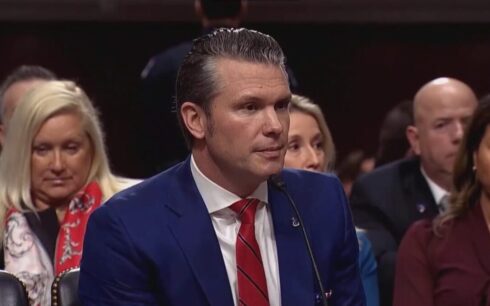KABUL, Afghanistan — The new Taliban law forbids “friendship and assistance with unbelievers.” The move comes despite the Taliban’s ongoing efforts to engage with Western nations and seek international aid for Afghanistan.
According to reports from Amu, the Taliban leadership has sought to improve relations with both Muslim and non-Muslim countries, including the West. The group has repeatedly asked for international assistance to address Afghanistan’s deepening economic and humanitarian crises.
The newly implemented law, however, imposes strict societal controls, including prohibitions on personal conduct and appearance. Article 22 of the decree outlines specific regulations concerning men’s hair and beards, as well as women’s voices and attire. Particularly notable is Article 20, which explicitly bans any form of friendship or assistance with “unbelievers” and instructs the Taliban’s moral police to prevent behavior that resembles Western customs or appearances.
This decree stands in contrast to the Taliban’s public statements and diplomatic actions, where leaders like Akhundzada have emphasized the importance of improving relations with the international community, including the West. In his messages during religious holidays such as Eid al-Fitr, Akhundzada has tasked the Taliban-run Ministry of Foreign Affairs with fostering trust with all nations, without exception.
Despite these decrees, the Taliban continues to host regular visits from Western envoys in Kabul, and non-Muslim countries like China and Russia have emerged as significant allies, often supporting the Taliban’s positions in international forums. The Taliban’s diplomatic outreach has also included high-level talks with U.S. officials. Notably, on July 29, 2021, Taliban Foreign Minister Amir Khan Muttaqi traveled to Qatar for negotiations with American representatives.
“Ultimately, our goal is to lay the groundwork for positive engagement and the improvement of economic and political relations,” Muttaqi said after those talks. He reiterated this stance in February 2023, urging the United States to assist with Afghanistan’s political and economic challenges.
Abdul Kabir, the Taliban’s deputy chief minister, has also repeatedly emphasized the importance of improving relations with the world, particularly with Western countries. “The world today has realized that these people are the rightful heirs of Afghanistan and that it is necessary to engage with these individuals,” Kabir said in a speech on July 22, 2023.
The apparent contradiction between the Taliban’s restrictive new law and its ongoing diplomatic efforts raises questions about the group’s true intentions. Meanwhile, a U.S. government watchdog reported that, during the Taliban’s three-year rule, the United States has provided $3 billion in aid to Afghanistan, with the Taliban benefiting from hundreds of millions of dollars through various channels. This aid is viewed by some analysts as a stabilizing factor for the Taliban’s regime.
Despite the prohibition on “friendship and assistance with unbelievers,” it appears that the Taliban is actively seeking to maintain and even deepen its ties with Western countries, which continue to provide substantial financial aid to Afghanistan.





